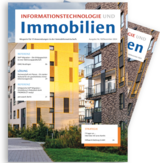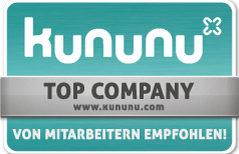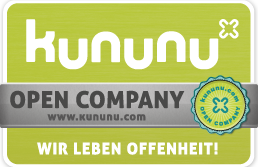The PC is becoming obsolete

The modern office culture with co-working spaces and the gradual phasing-out of fixed workstations are not the only indications of the tendency towards mobility. The trend is also underlined by the statistics, as the number of smartphone owners in Germany in 2015, at 46 million, was seven times as high as in 2009. Google Play and the Apple App Store recorded 179 billion apps purchased in 2015.
There may not yet be any exact data regarding the use of mobile technologies in everyday work, yet the record levels of business trips at German companies point to a clear trend here too. At the same time, according to the EU Commission, the sectors of the digital economy are expanding at seven times the rate of the real economy.
There are therefore two fundamental criteria for career purposes, namely performing as many work processes as possible using a mobile terminal device and providing necessary information via a central data platform.
Unique opportunity to increase efficiency
What do these findings mean for the real estate industry? In a nutshell, there is a great opportunity to boost the efficiency of work processes and increase customer satisfaction. Housing companies in particular can benefit greatly from digital real estate. Even now it is possible to essentially digitise the communication between property managers, service providers and tenants. This is made possible by networking platforms such as easysquare, which is used, for instance, at the “Berliner Bau- und Wohnungsgenossenschaft von 1892” (Berlin-based construction and housing association of 1892). Anja Miericke, Head of Inventory Management, lists the main advantages: “Be it while inspecting a property or in conjunction with the final inspection of an apartment, writing notes by hand and subsequently transferring them to the ERP system back at the office has become a thing of the past.”
If it is developed and implemented correctly, an app forms an interface between the company’s own ERP system and the requirements of the tenant on site. Predefined forms for property handover, for repair orders or for contract management can be completed by the tenant and processed in the central system. In contrast to the case with common tenant portals, tenants can supply a legally binding signature in the platform. This practice, which has long since established itself in parcel delivery, dispenses with unnecessary printouts and costly dispatch by post. If defects are reported, photos can be integrated into the forms, thus eliminating the need for time-consuming appraisal. In addition, there is no longer any need to spend time processing tenant data in various drive folders thanks to the direct processing in the ERP system. A final dissertation at the Brandenburg University of Applied Sciences has shown that using mobile terminals reduces the average duration of taking over an apartment by more than 50 percent – from 60 to 26 minutes.

Orientation towards the customer
Consequently, IT manufacturers need to be oriented both towards their customers and towards the customers of their customers. It is therefore essential that the aforementioned communication can take place using a mobile app. However, real estate apps currently still concentrate primarily on house hunting – hardly any app provider has thought about the time after moving in. In comparison, tenant portals on the Internet have not actually lost their reason for being, but are no longer in keeping with the times in view of the focus on the smartphone. What is in keeping with the times is delegating work processes to service providers and customers using mobile technologies. Although it is now possible, for example, for damage to be reported by the tenant, the alternative of contact by phone followed by a personal appraisal by the technician is most certainly more time-consuming.
Another way in which efficiency is increased is in using the app as a means of contact. It makes a difference whether a tenant request is directed straight to the electronic mailbox of the employee responsible or whether notes from phone calls or text messages are scribbled on bits of paper. Last but not least, central ERP systems in companies are rectifying the frightful fact that two thirds of all incoming information still bypasses the IT department. An evaluation of 20,000 rental objects has shown that the tenant costs for communication via call centres and postal dispatch amount to around 30 euros per year. Using the app, this total can be reduced to an annual figure of just under one euro.
Secure and innovative cloud solutions
Networking solutions are becoming a key tool for companies in the competition for cost and time efficiency. Within the workforce, simultaneous access to information with the possibility of processing it is becoming more and more important. It goes without saying that this also concerns home office users and field staff, who can use mobile solutions to enter their data directly in the general software. Industries such as real estate especially benefit from real-time changes to shared documents. The volatility of budget plans is all too familiar here. Spontaneous inspections of properties, for example as a result of structural damage, require detailed information regarding the property to be made available locally. Accordingly, the quality assessment is becoming one of the main areas of application of mobile solutions, allowing addresses, components, inspection tasks and deadlines to be monitored on site and compared with the corresponding standard specifications from the ERP system. Automatic backups and history functions in the app ensure that companies can meet obligations to provide evidence as well as company-specific compliance regulations.
The question remains as to how to store data securely. Public clouds such as Dropbox or Google Drive may eliminate the need for companies to set up their own data centres, but they are not exactly very impressive with regard to secure and transparent data protection. In contrast, companies are completely independent of external service providers if they establish their own private clouds. At present, a combination of the two is usually preferred. When it comes to storing sensitive data, it is vital to choose a partner who not only has powerful Internet capacities but is also economically sound. All of these features are required in order for the full efficiency of mobile technology to be tapped for the real estate industry.
Author:

Jens Kramer
CEO
PROMOS consult
Other articles by this author:
- Article "Property management is cloud capable"
- Article "The PC is becoming obsolete"
- Article "Making short work of minor repairs"
- Article "The digital transformation – an opportunity for the housing industry"
- Article "Fast, mobile, user friendly – digital solutions for the residential property business"
- Article "Artificial Intelligence – Why you should pay special attention to this new technology"


